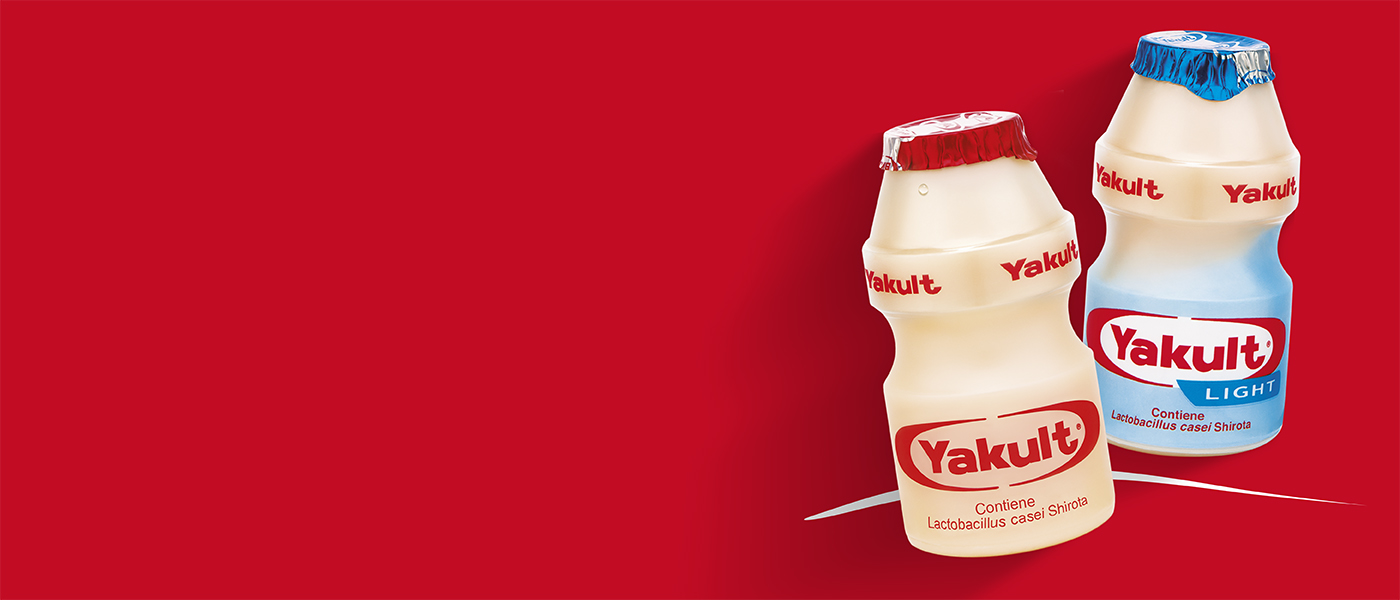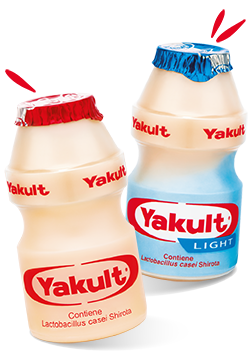
To live better, we need a billion a day.
Yakult: thanks to its billions of live lactic acid bacteria, we are all richer inside.
Yakult is fermented skimmed milk drink which contains at least 6,5 billion lactic acid bacteria Lactobacillus casei Shirota (LcS) in each bottle, selected and cultivated in Japan in 1935 by Dr. Minoru Shirota.
LcS, the Yakult-exclusive strain of bacteria, is strong enough to resist gastric juice and reaches the gut alive.
Yakult is suitable for everybody and can be drunk anytime during the day*.
It has no additives or artificial colouring, and it is gluten-free and fat-free.
*With the exception of people who are allergic to cow’s milk and children who do not yet receive a varied diet.

Original or Light, choose your Yakult!
Today in Malta there are two different versions of Yakult: ORIGINAL (available in the red packaging) and LIGHT (available in the blue packaging). Yakult Light contains 36% less calories (60% less sugar) than the Original one, but contains the same quantity of lactic acid bacteria LcS.
Yakult Light is suitable for those who want to drink Yakult, but need to reduce the amount of calories or the amount of sugar in their diet.
Click here to read the ingredients and the nutritional values of Yakult.
YAKULT IS A UNIQUE AND ORIGINAL PRODUCT. DISCOVER WHY.
What does 'Lactobacillus casei Shirota' really mean?
The name is broken down as follows:
Lactobacillus (genus): made up of two Latin words “lacto” meaning milk and “bacillus” meaning “small rod”. Lactobacilli are small rod-shaped bacteria, often found in diary products.
Casei (species): Latin word for ‘cheese‘ reflecting the association of this species with fermented dairy products.
Shirota (strain): this specific strain was named after the Yakult’s founder scientist Dr. Minoru Shirota, the Japanese microbiologist who selected it more than 80 years ago.
Why is it named Yakult?
Yakult comes from “jahurto” which in Esperanto means yoghurt. At the time that Dr. Shirota, medical doctor and researcher discovered the strain of the LcS lactic acid bacteria contained in Yakult, it was believed that this new language would become common among all peoples, allowing them to communicate easily. The choice of this name shows how broad the view of the Yakult’s “father” was and his wish to reach as many people as possible.